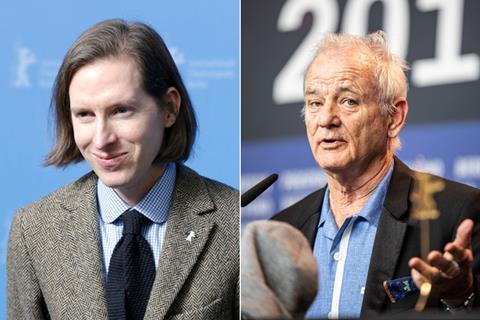Wes Anderson is one of the most unique and celebrated filmmakers of the past few decades. Known for his visually stunning, charmingly eccentric movies, Anderson has crafted an unmistakable aesthetic and tone across his filmography. Let’s take a closer look at Anderson’s career, stylistic trademarks, frequent collaborators, and impact on contemporary cinema.
Early Life and Influences

Growing Up in Texas
Wes Anderson was born in Houston, Texas in 1969. He grew up in Texas with his parents and two younger brothers. From a young age, Anderson loved cinema and started making amateur films as a child using his father’s Super 8 camera. Some of Anderson’s biggest inspirations as a budding filmmaker included Terrence Malick, François Truffaut, Orson Welles and Satyajit Ray.
Studying Film at University of Texas
Anderson went on to study philosophy at the University of Texas at Austin. It was there that he met his future frequent collaborator Owen Wilson. The duo started crafting stories together and ended up writing the screenplay for what would become Anderson’s breakout feature film Bottle Rocket. Even as an undergraduate, Anderson’s artistic voice and offbeat sensibilities were apparent.
Moving to New York City
After college, Anderson headed to New York City intent on pursuing a filmmaking career. He worked as a production assistant on films and music videos to get experience. Anderson continued writing screenplays with Wilson and refining his aesthetic. The next big break came when producer James L. Brooks saw a short version of Bottle Rocket and offered to produce a full-length version. This launched Anderson’s career.
Style and Themes

Meticulous Aesthetic Detail
One of Anderson’s most defining traits as a director is the incredible attention to detail he brings to the visual aesthetics of every film. He is heavily involved in art direction, costume design and creating storyboards to craft his unique worlds. Anderson combines stage-like sets, nostalgic props, colorful palettes and ornate production design to achieve his signature storybook look.
Quirky Sensibilities
Wes Anderson’s films are infused with quirky characters, dry humor, deadpan delivery and absurd situations. While his movies deal with serious themes, Anderson maintains a light-hearted charm and playfulness. He presents the eccentricities and foibles of his characters without judgment. Anderson’s ability to find poignancy in the oddballs and underdogs is a hallmark of his style.
Flawed Yet Sympathetic Characters
At the center of Anderson’s films are often anxious, troubled protagonists trying to find connection. There is a melancholy that runs through many of his movies as characters grapple with loss, nostalgia, family dysfunction and unfulfilled desires. Yet Anderson treats his flawed heroes with empathy and humanity. The films are as much about chosen families, friendship and yearning as they are about failures and frailties.
Frequent Collaborators

Bill Murray
Bill Murray has appeared in every live-action Wes Anderson film and is considered part of the director’s regularpe. Murray usually plays supporting roles as a world-weary, deadpan counterpoint character. The collaboration between Murray’s subdued acting style and Anderson’s visuals has produced some truly memorable performances.
Owen Wilson
Owen Wilson was Anderson’s classmate at the University of Texas at Austin and co-writer on Bottle Rocket, Rushmore and The Royal Tenenbaums. Their creative partnership was central to Anderson’s early career. Wilson has also frequently acted in Anderson’s films, often as a hustler or rogue character. The warmth and humor that Wilson brings complement Anderson’s controlled style.
Jason Schwartzman
Jason Schwartzman delivered a breakout performance as Max Fischer in Rushmore. Since then, Schwartzman has appeared in almost all of Anderson’s films. He often plays pretentious, neurotic characters. Schwartzman’s energy plays well against Anderson’s deadpan direction. Together they add layers of awkward comedy.
Impact and Legacy
Wes Anderson is considered one of the modern pioneers of American independent cinema, forging a distinctly auteurist vision like few directors can claim. Visually, narratively and tonally, Anderson’s movies bear an unmistakable signature. He has influenced a generation of filmmakers with his idiosyncratic approach and inspired many contemporary indie comedies.
Critical Acclaim
While always maintaining his unique sensibility, Anderson has garnered critical acclaim over his career. Four of his features have been nominated for Best Original Screenplay at the Academy Awards. He has proven that quirky, character-driven films still have an audience. Many consider him among the best directors of the last 25 years.
Cult Following
Anderson has also developed a devoted cult following. His films are dissected at length by fans and critics alike. The visually dense frames reveal new details on repeat viewings. Aspiring directors study Anderson’s films religiously. His style has permeated other media like fashion, television commercials and music videos. Ultimately, Anderson’s impact stems from the sheer originality of his vision.
With an unmistakable aesthetic, a gift for bittersweet comedy and a rich gallery of indelible characters, Wes Anderson has secured his place in cinematic history. He has influenced a generation of indie filmmakers and helped carve out a space for his unique voice. While not everyone appreciates Anderson’s preciosity and controlled whimsy, there is no denying he is a master of his craft. Wes Anderson imbues his films with such artistry and emotional honesty that they feel like small miracles. He continues to be one of American cinema’s most daring, if unlikely, auteurs.
Wes Anderson’s Filmography
- Bottle Rocket (1996)
- Genre: Comedy-drama
- Plot: Three friends, Anthony, Dignan, and Bob, plan to rob a local grocery store to fund their dream of starting a bed and breakfast in Belize.
- Reception: The film received critical acclaim for its quirky humor, deadpan delivery, and unique visual style.
2. Rushmore (1998)
- Genre: Comedy-drama
- Plot: Max Fischer is a precocious prep school student who befriends the wealthy industrialist Herman Blume. However, their friendship is tested when Max falls for Blume’s wife, Rosemary.
- Reception: The film was praised for its performances, writing, and Wes Anderson’s signature style.
3. The Royal Tenenbaums (2001)
- Genre: Comedy-drama
- Plot: The eccentric Tenenbaum family reunite when their patriarch, Royal, returns home after a long absence. The film follows the family’s relationships and struggles as they try to reconnect.
- Reception: The film was a critical and commercial success, earning an Academy Award nomination for Best Original Screenplay.
4. The Life Aquatic with Steve Zissou (2004)
- Genre: Comedy-adventure
- Plot: Steve Zissou is an eccentric oceanographer who sets out on a journey to find the jaguar shark that killed his partner. He is joined by a crew of quirky characters, including his estranged son.
- Reception: The film received mixed reviews from critics, with some praising its unique style and performances, while others found it too quirky and self-indulgent.
5. The Darjeeling Limited (2007)
- Genre: Comedy-drama
- Plot: Three estranged brothers travel across India by train in an attempt to reconnect and heal their fractured relationships.
- Reception: The film received generally positive reviews from critics, with many praising its performances, cinematography, and Wes Anderson’s signature style.
6. Fantastic Mr. Fox (2009)
- Genre: Animated comedy
- Plot: Mr. Fox is a cunning fox who leads a group of animals in a rebellion against the farmers who are trying to kill them.
- Reception: The film was a critical and commercial success, earning an Academy Award nomination for Best Animated Feature Film.
7. Moonrise Kingdom (2012)
- Genre: Comedy-drama
- Plot: Set on an island off the coast of New England in the 1960s, the film follows the adventures of two 12-year-olds who fall in love and run away together.
- Reception: The film received critical acclaim for its performances, cinematography, and Wes Anderson’s signature style.
8. The Grand Budapest Hotel (2014)
- Genre: Comedy-drama
- Plot: The film follows the adventures of Gustave H, a legendary concierge at a grand hotel in the fictional Republic of Zubrowka, and his relationship with a young lobby boy named Zero.
- Reception: The film was a critical and commercial success, earning four Academy Awards, including Best Original Screenplay.
9. Isle of Dogs (2018)
- Genre: Animated comedy
- Plot: Set in a dystopian future, the film follows the adventures of Atari Kobayashi, a young boy who travels to Trash Island to find his beloved dog, Spots.
- Reception: The film received critical acclaim for its animation, voice acting, and Wes Anderson’s signature style.
10. The French Dispatch (2021)
- Genre: Comedy-drama
- Plot: The film follows the stories of a group of journalists working at an American newspaper in the fictional French city of Ennui-sur-Blasé.
- Reception: The film received mixed reviews from critics, with some praising its performances and Wes Anderson’s signature style, while others found it too disjointed and self-indulgent.



